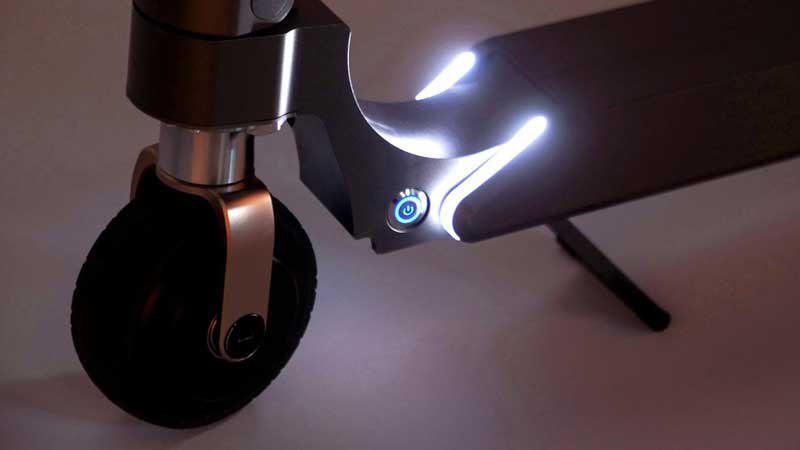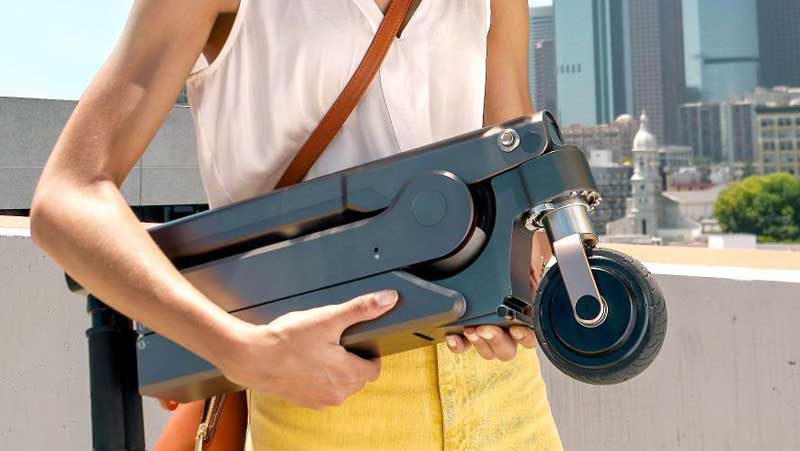South Korean automotive giant Hyundai has unveiled a new prototype electric personal scooter with a 20-kilometre range, building on the company’s initial concept presented at CES 2017.
The new electric scooter is part of Hyundai Motor Group’s plans to enable first- and last-mile mobility by integrating the scooter with future Hyundai and Kia vehicles.
Specifically, when mounted on a vehicle, the electric scooter is charged automatically using electricity produced while driving.
Boasting rear-wheel drive, stylish front and rear lights, and a 10.5 Ah lithium battery enabling 20-kilometres in range and a top speed of 20 km/hr, Hyundai’s new personal electric scooter has enhanced safety and stability as the weight has been repositioned to the rear of the device.

Weighing in at only 7.7 kg, the scooter also comes with front suspension but is still highly portable and easy to carry (as shown in the video below).
“This is the vehicle-mounted personal scooter which could be featured in future Hyundai Motor Group vehicles,” said DongJin Hyun, head of Hyundai Motor Group Robotics Team.
“We want to make our customers’ lives as easy and enjoyable as possible. Our personal electric scooter makes first- and last-mile commuting a joy, while helping to reduce congestion and emissions in city centres.”
Hyundai’s electric scooter also comes with a digital display which shows battery status and speed and has “stylishly-curved” front LED headlines and two rear tail lamps to provide increased safety at night.
Expect to also see regenerative braking systems in future models of the mobility scooter which Hyundai believe could increase the scooter’s range by as much as 7%.
And while, for some people, at first blush this scooter might seem an unnecessary extra – or, at best, a fun but unessential add-on – Hyundai Motor Group highlighted research data published by global consultancy group McKinsey & Company which predicts the “Last Mile Mobility” market in the United States, Europe, and China, is expected to grow by as much as US$500 billion (AU$740 billion) by 2030.
Pairing such a last-mile scooter with new Hyundai and Kia cars, therefore, will likely provide the initial uptick in awareness and sales to give these scooters the kickstart they need, but given the popularity of all mobility devices electric, Hyundai are probably on to a winner with their new electric scooter.
That being said, if this scooter is to make any inroads into Australia’s streets and alleyways, Hyundai will need to compete with the already well-established urban mobility company Lime and US mobility company Bird, which is looking to launch its own scooters in Australia any day now.
Joshua S. Hill is a Melbourne-based journalist who has been writing about climate change, clean technology, and electric vehicles for over 15 years. He has been reporting on electric vehicles and clean technologies for Renew Economy and The Driven since 2012. His preferred mode of transport is his feet.

